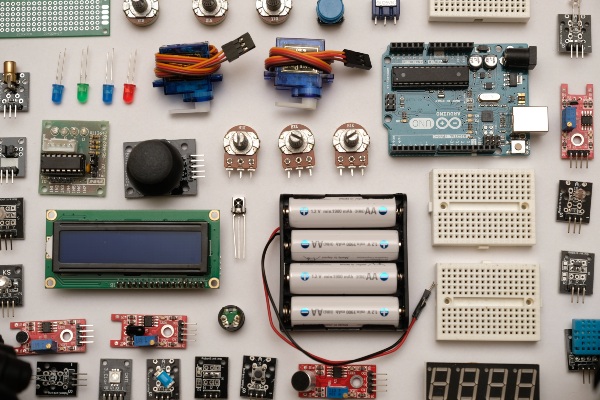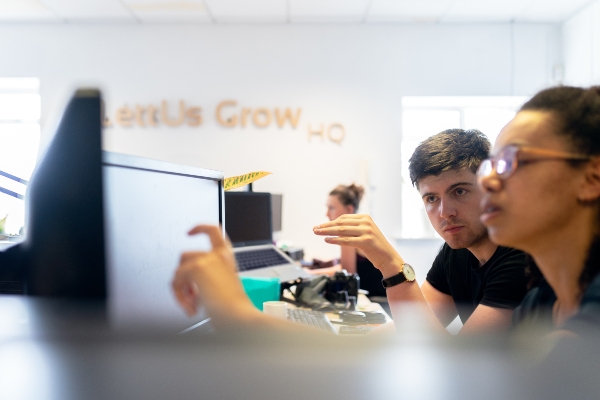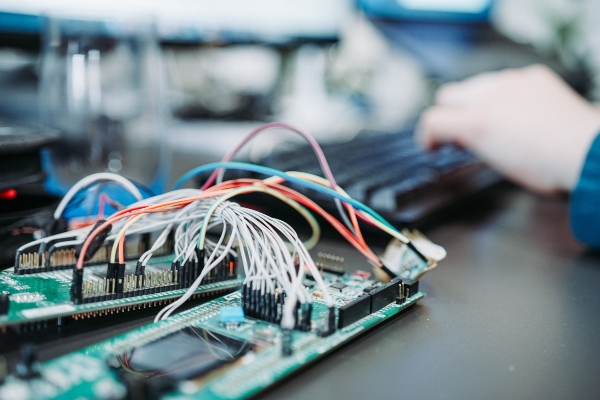Electronic Engineer Interview Questions
What you Need to Know


What you Need to Know
Preparation for a job interview can take many forms, but one of the best ways to get ready is to research the kinds of questions your interviewer is likely to ask. This is a great way to start preparing answers and anticipate what the interviewer is going to want to know about you, and in the case of electronic engineers, know what topics you need to look over to feel confident answering technical questions.
From basic conversation starters getting to know more about the candidate’s personality to specific queries about previous experience, there’s a wide range of interview questions for engineers in the electronics industry. In this article, we offer a brief overview of the role of an electronic engineer, and then share our insight into common interview questions and how you should answer them.
An electronic engineer is a type of electrical engineer that specialises in the design and development of electrical components, electronic circuits and any products that use one of these. They will often have a background in general electrical engineering topics such as electromagnetic theory, but have built their skills around dealing with specific electronic components and systems.
Electronic engineers tend to work on individual aspects of engineering projects, focusing on fixing, installing or building things like resistors, capacitors, diodes, integrated circuits and inductors. They can work across a variety of industry sectors, from robotics to communication, healthcare and personal devices.
Whilst the role of an electronic engineer is part of the wider electrical engineering area, you can specialise in things like audio electronics, control and automation systems, and embedded systems devices.

Depending on the kind of systems or components that an electronic engineer works with, their day-to-day responsibilities will differ. They may work independently designing or testing electronics products, or they might work as part of a team of software developers, electrical engineers and technical design engineers.
Here’s a breakdown of some aspects that the role might involve:

The kinds of questions that come up in an engineering interview will really depend on the person you’re talking to, the company’s approach to hiring and the kind of role you’re applying for. However, the below questions are a good place to start if you’re looking for common questions that might come up when being screened for a job.
Asking what inspired someone’s interest in their career area is one of the most common electronic engineering interview questions. It explains a lot about your interest in electronics, indicates whether you have a real passion for the area, and also can be a good way to find out more about your journey to becoming an electronics engineer.
If there was a project or something you learned about that first sparked your interest in electronics, this is the time to talk about that. Let the interviewer see your personality and feel like they’ve gotten to know you a bit better, and start to talk about your career progression up to this point if possible.
Electronics engineers are often more involved in the building of circuits and devices than programming them, but it’s still important to understand or have experience programming so you know how your design is going to affect the software or program required to make the device function. Try and talk about where your electronics and programming work have overlapped, and be honest about where your strengths and weaknesses lie.
The sign of a really special job candidate is someone that has an interest in their industry outside of work and puts the effort in to keep up to date with what’s happening and any new developments that might affect their work. Whether you read blogs, follow and interact with key figures in your field or pursue electronics projects in your free time, it will really benefit you to talk about any interests and work involving electronics outside of your job.
The role of an electronic engineer involves a fair bit of independent working. What you design, build and test will often be part of a project that involves numerous other engineers and programmers, but a lot of your time will be spent completing tasks by yourself or with only a couple of other people.
A potential employer is going to want to hire engineers that are confident in working independently and can be relied upon to deliver what is needed without other employees around them to hold them accountable. Whether you have a system in place to stay motivated or can talk about past experiences to demonstrate that this is a skill you have, sharing that you’re an efficient independent worker will be a big benefit when applying for electronics engineer jobs.
Potential employers are likely also looking for engineering candidates that are adaptable and won’t be thrown if a project changes or develops in an unexpected direction. There are usually setbacks and challenges that need overcoming in engineering work, and successful candidates are the ones that can roll with the punches and quickly adapt and continue.
Again, it’s a good idea to talk about previous experiences you’ve had that have involved handling change, as this gives evidence that you are adaptable and don’t get overly rattled by unexpected modifications. It’s okay to find change difficult at times, but in an interview you need to show awareness of this and have a clear method of coping so that the interviewer can see that you’re adaptable.

Accuracy is absolutely essential in electronics engineering. Designs need to be exact, installation needs to be done correctly, and testing must identify potential problems and fix them so that there aren’t any errors with finished devices and systems.
You should share any protocols or processes you’ve developed which help to ensure accuracy and talk about occasions where these have meant a finished project has no errors. It can also be good to give an example of a time when your accuracy checks have detected a problem, as this indicates that they are effective.
The interviewer will be looking for a candidate that has good attention to detail and high standards of work, so make sure you can demonstrate this.
As well as having good attention to detail, being able to successfully prioritise is another thing that is very important for electronic engineering candidates. There will likely be times in your career when you’re given multiple projects to complete with close deadlines, and knowing how best to prioritise these tasks to get everything done on time is a very valuable skill.
Time management and prioritisation should be skills that you can give evidence of in an interview, demonstrating that you have successfully handled multiple tasks or projects at work before. You can talk about any processes you use to determine the importance and urgency of your responsibilities as well.
This question assesses your knowledge of electronic devices and their common faults, as well as looking for initiative in how you might go about fixing or improving these. The interviewer is looking for a good understanding of what might go wrong with a device and why this would cause problems, which demonstrates knowledge of your field and a wider understanding of how your work affects a product’s function.
You’re also being assessed on your creativity and ability to problem solve in these interview questions for electronic engineers, so it’s a good idea to justify why you have made each of your suggestions. The way you explain and back up your suggestions is just as important as your method itself, so don’t panic if you think you’ve approached the question from the wrong angle.
This is a classic interview question for engineers that asks the candidate to talk about a previous situation where they had to overcome a challenge. Your answer is a great way to talk about how you approach difficult work situations in a productive way, and also share an experience where you have been successful during a previous role or project.
To approach answering this question successfully, first describe what the problem was, how it was discovered and what this meant for your progress or the progress of the rest of the project. Describe how you approached coming up with a solution, whether you tried anything else first, and then how your response solved or removed the problem.
Finally, another classic electronic engineering interview question asks the candidate to talk about a time they made a mistake at work. This is important because it shows the interviewer that you are self-aware and can be reflective and constructive when thinking about your performance at work, and it also gives you the chance to demonstrate how you have learned from previous mistakes.
Explain the mistake you made and how it came about, but then share what you learned from it and ideally what you did to ensure it wouldn’t happen again. This shows that you’re someone that sees setbacks as learning opportunities and will actively grow from their mistakes, holding yourself accountable and avoiding repeated errors.
The above questions delve into your career background, your understanding of the company and the role you’re applying for, and your interest in electronic engineering. But most engineering interview processes also have a technical element, where you’ll be quizzed on specific elements of electronic engineering and electrical theory to gauge your skills, knowledge and suitability for what the role will require.
Here are some of the kinds of technical questions you might be asked:

Job interviews are a part of every career path, and they’re definitely something that gets much easier the more you do. Feeling prepared is one of the best ways to enter an interview with a positive and confident outlook, and the questions we’ve listed in this article are a great way to get started with that.
If you’re an electronics engineering candidate looking for a role, KO2 is a specialist recruiter in the electronics and embedded systems industry sector that can help to find you your perfect job opportunity. Browse our available positions here or get in touch and find out more about how we can help.

 Investing in a Business in the Electronics and Embedded Systems Sector –...
Investing in a Business in the Electronics and Embedded Systems Sector –...